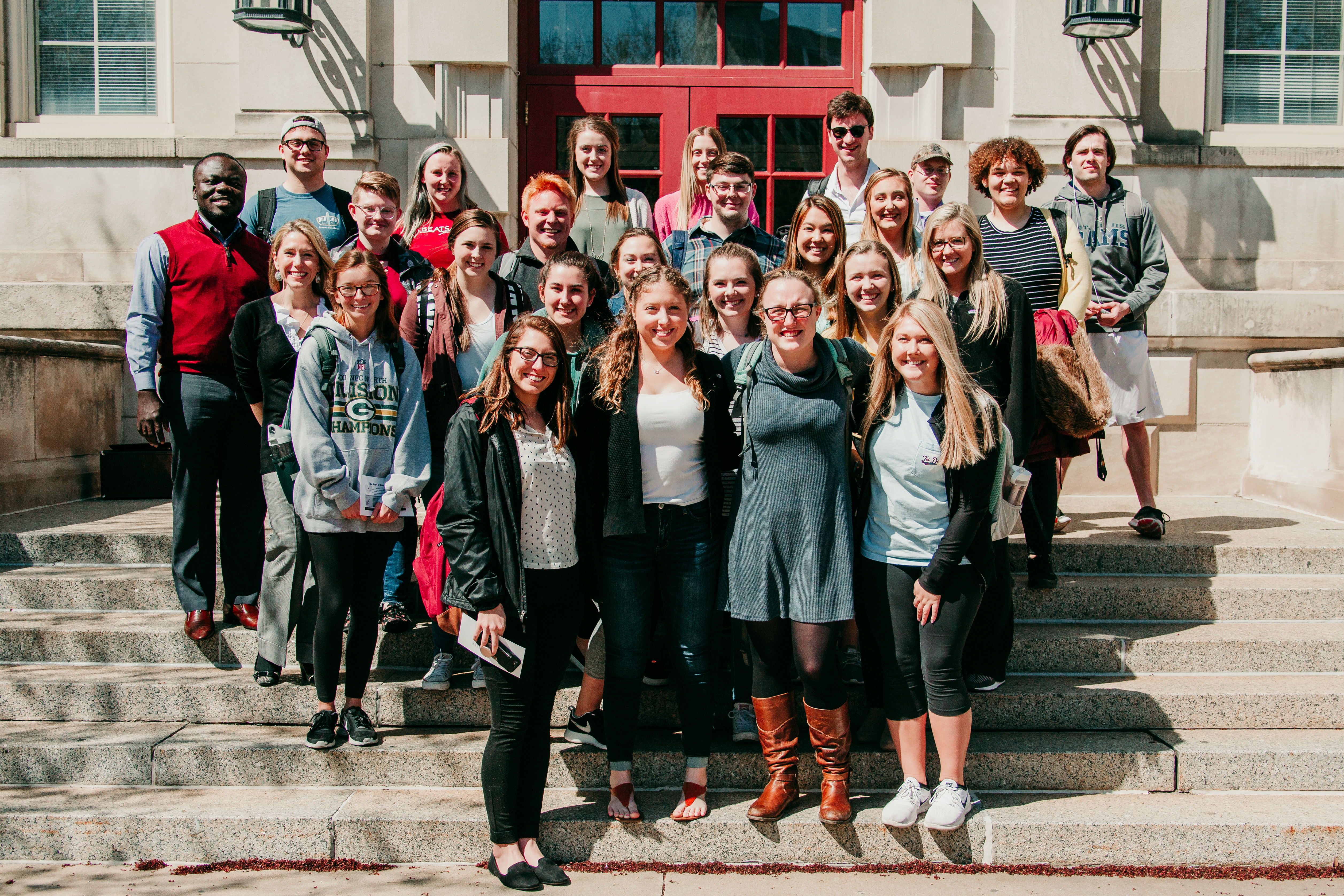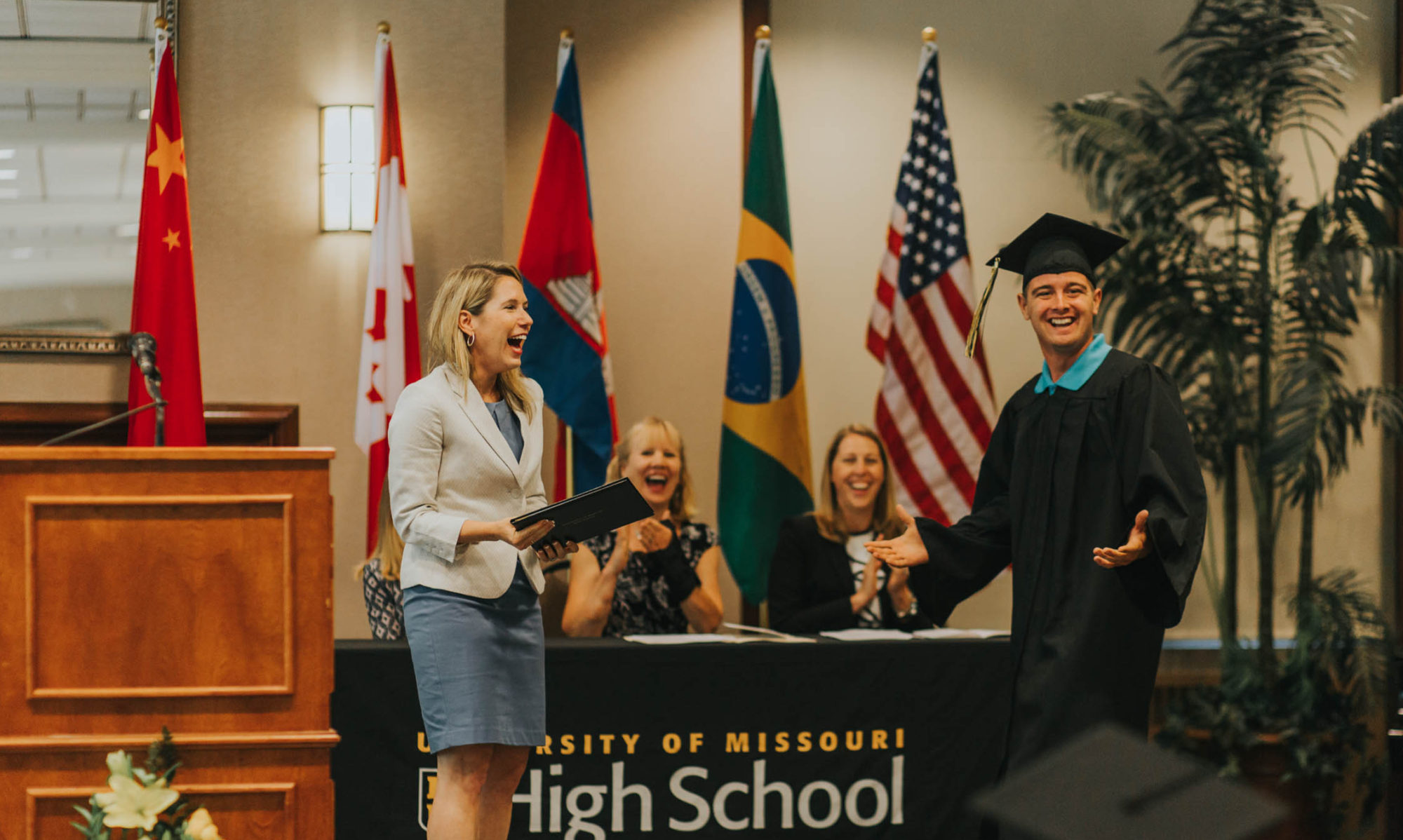Reflections from my semester working with pre-service teachers; plus an invitation to view our open access journal, which will restore your faith in our future classrooms.

The Classroom
We meet in 133 Mumford Hall on Tuesday and Thursday afternoons. Mumford Hall is tucked away behind Memorial Union. It is a 10-minute walk from the College of Education and a big breath away from downtown. Mumford Hall is home to the Department of Agricultural and Applied Economics. The faculty that calls this building their home sometimes seemed surprised by our constructivist teacher-ed antics. Maybe it has something to do with the marching band instruments we integrated into our lessons on more than one occasion. In short, we made ourselves at home and we piqued some interest along the way.
We know this building now; we know the conference rooms and sunny corners perfect for gathering to host book club discussions or work out presentations on school equity. More importantly, in this building, we found a home for our class community. Here we leaned in to moments of hope, concern, vulnerability, and courage.
The path to becoming a culturally responsive teacher is marked by countless moments, big and small, of connection and learning. We processed these together n 133 Mumford. Yet our classroom extended beyond this building. The community was our classroom as well. In fact, thinking about teacher education as a community project is consistent with the thesis of this journal.
The Class
LTC 2040, Inquiring into Schools, Community and Society I, is a required foundation course for all teacher education students in the College of Education at the University of Missouri. This course serves two important functions. First, 2040 lays a foundation for understanding some of the structure, history, and issues surrounding schools and teaching. Second, it investigates the complicated and challenging nature of what it means to teach in a diverse society. The course addresses the importance of being a culturally competent advocate for all students in our classrooms.
The Idea
On the very first day of class, we posed this question: How will I create an inclusive culture to support my students’ achievement? The future teachers in our class tackled this question though reading, dialoguing, and engaging in powerful community-based work. We were so struck by their projects and insights, that we wanted to create a platform where they could share their action research with others in the education community. For this reason, we are thrilled to launch “To be of Service” the first-ever 2040 Open Access Journal. This journal will be released at our Research Roundtable on Thursday, April 19, 2018.
The Journal Prompt
Dr. Fishman-Weaver has often said, “Relationships are the heart of great teaching.” This sentiment is shared by Mr. Pinto and has become a theme of many of our conversations. In a reflective essay, defend, refute, or qualify this claim. Use your cultural immersion project, service learning experience, and our dialogues and readings as evidence.
The Journal
As usual, the scholars in our class knocked this out of the park. We hope folks across the education community dive into this first volume and are reminded that our future classrooms are full of hope and promise. In the following pages, you will read about the lessons these scholars have learned about connection, difference, and the importance of relationships. The stories are honest, vulnerable, and make it clear that our future teachers and their future students will build inclusive classrooms filled with both connection and learning.
Curious about this journal? Click here to read. You will be so glad you did.
Enthusiastically, Dr. KFW
